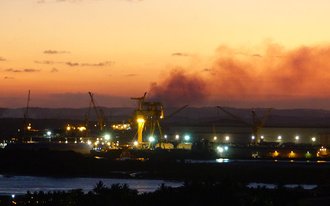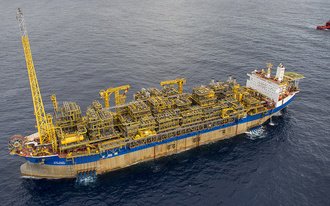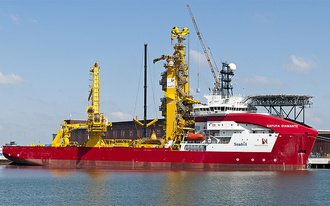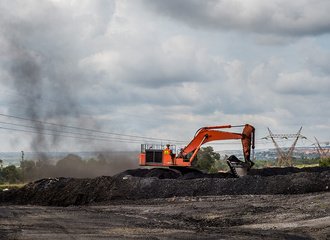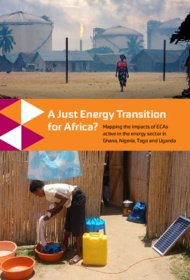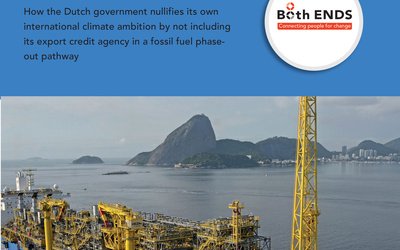Paris Proof Export Support
Almost two-thirds of the export credit insurances that Atradius DSB provided in the 2012-2018 period went to the fossil energy sector. That is contrary to the climate agreements that the Netherlands signed in Paris.
In December 2015, the Netherlands signed the Paris Climate Agreement, under which global warming has to be limited to a maximum of 2 (preferably 1.5) degrees Celsius. A growing number of companies are making their production methods more sustainable and are switching to renewable energy, to minimise or even halt the negative impact of their activities on the climate. But Dutch companies do not only operate in the Netherlands. On the contrary, many of our economic activities take place abroad, and the negative effects of these activities are therefore mostly felt there. To achieve the transition to a sustainable economy, it is therefore vital that we also devote attention to making Dutch activities abroad more sustainable.
Government support
The Dutch government promotes the export of goods and services in many ways, for example with grants and tax arrangements. For very large-scale and high-risk activities abroad, it provides export credit insurance (see dossier on ECAs). Both ENDS believes that this public support for foreign trade should contribute to sustainable development for all, and not just benefit Dutch companies. This means that, to be eligible for export support, Dutch activities abroad should not be harmful to people and their environment in the countries where they take place. Furthermore, they should always be in line with the climate goals set in Paris in 2015.
Two-thirds to the fossil fuel sector
This is by no means always the case. Both ENDS analysed all of the Dutch export credit agency Atradius DSB's transactions during the 2012-2018 period, which showed that the company provided insurance to projects related to the fossil fuel sector worth a total of €10.8 billion. That is two thirds of the total value of insurance provided by Atradius DSB during that period.
Almost 98% of all insurances provided by Atradius DSB in support of energy projects, are related to fossil fuels. Of this support, the larger part (80%) goes to the offshore and maritime sector. For instance to shipyards that build pipe-laying vessels and floating drilling rigs, known as Floating Production, Storage and Offloading ships (FPSOs). Or to dredging companies that dig port channels for the transshipment of fossil fuels (see dossier on Suape) or raise coastlines so oil refineries can be built on them. In this way, the export credit insurances provided to Dutch exporters of such projects greatly contribute to the expansion of the infrastructure of the global oil and gas sectors.
Public funds to support the fossil fuel sector
The Ministry of Finance holds primary responsibility for the policy of Atradius DSB and parliament has an important role as supervisor. So far, there has been no political discussion about the extent to which Atradius DSB supports the fossil fuel sector and how this can be aligned with the agreed climate goals. The Dutch government appears to see no problem in using public funds to support the fossil fuel sector.
Sustainable trade and investment policies
If the Netherlands wants a green and inclusive economy, the government should ask itself how export credit insurances for the fossil fuel sector can be stoped and used to support green, sustainable transactions. The Netherlands should focus much more on energy efficiency, energy saving, sustainable mobility, and solar and wind energy. The aim to achieve a climate-neutral economy must therefore be reflected in our trade and investment policies. Both ENDS realises that phasing out export credit insurance that supports the fossil fuel sector will be a gradual process. But we can no longer postpone the discussion on how that process should be conducted.
Sustainable Export Support
The Dutch government indicates that it will end all financial support to coal projects and exploration and development of new oil and gas fields abroad from its foreign trade and development cooperation instruments as of 2020. Unfortunately, this commitment is not applied to the export credit facility, which supports the by far largest volume of fossil fuel related business transactions abroad.
Both ENDS calls on the Dutch government and parliament to ensure that the export credit insurance provided by Atradius DSB is in line with the climate goals of the Paris Agreement. The report 'Paris Proof Export Support' contains a number of recommendations to achieve that. These recommendations are summarised below:
1. Include the export credit facility in its foreign climate targets and set the target for ADSB to provide no new fossil fuel support by 2020.
2. Advocate for the same target at the OECD, and urge for an immediate
stop of all ECA support for coalrelated projects.
3. In 2020, set up a Coalition of the Willing: a dialogue between countries willing to decarbonise their ECAs together in line with the Paris Agreement.
4. Take initiatives to ensure EU policies for ECAs take into account commitments of the EU to contribute to combating climate change.
For more information
Read more about this subject
-
Dossier
Uganda’s Energy Future
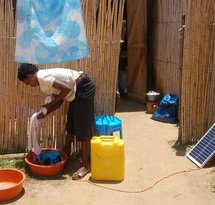
Despite the existence of many hydropower dams, foreign investments and large government spending on energy, and new plans for hydropower, oil and gas projects, the vast majority of rural Uganda still remains without electricity. Together with our local partners we are striving towards a sustainable energy strategy for Uganda that starts from the needs and wishes of local communities.
-
Dossier
Gas in Mozambique
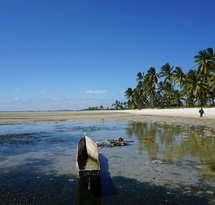
In 2011 one of the world’s largest gas reserves was found in the coastal province of Cabo Delgado, in the north of Mozambique. A total of 35 billion dollars has been invested to extract the gas. Dozens of multinationals and financiers are involved in these rapid developments. It is very difficult for the people living in Cabo Delgado to exert influence on the plans and activities, while they experience the negative consequences. With the arrival of these companies, they are losing their land.
-
Dossier
Export Credit Agencies: Who pays the price?

Both ENDS calls on the government only to provide export credit insurance to sustainable projects that cause no social and/or environmental damage in the countries where they take place.
-
Dossier
Suape: port expansion threatens paradise
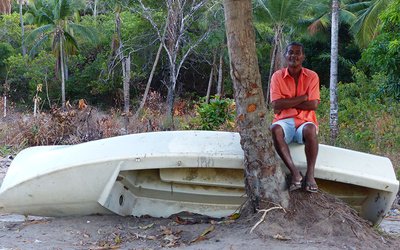
Two projects insured by Atradius DSB in the Brazilian port of Suape have caused serious social problems and environmental damage. Both ENDS is helping the local people to obtain justice.
-
News / 4 November 2022
Both ENDS to attend climate conference in Egypt
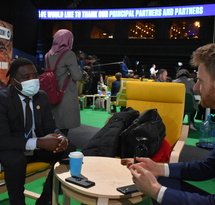
Climate action is urgently needed to slow down global warming. The effects of climate change are already showing themselves. Floods in Pakistan and closer to us, in the Netherlands, are causing loss of life and much emotional and economic damage, while local climate solutions are still largely being ignored. That's why Both ENDS is going to participate in COP27, the climate conference in Sharm El Sheikh, Egypt.
-
Press release / 3 November 2022
The Netherlands breaks major climate promise to end public financing for international fossil fuel projects
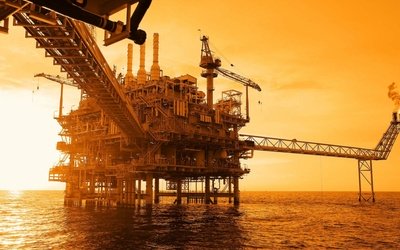
Today, a week before the international climate summit in Egypt, the Dutch Government has broken a major climate promise it made last year to end public financing for international fossil fuel projects. International and Dutch NGOs argue that the new policy published by the Dutch Government on restricting finance for fossil fuels has such significant loopholes, that it essentially means The Netherlands has reneged on its promise.
-
External link / 24 August 2022
A breakthrough in finance, a break with fossil fuels (Annual Report 2021)
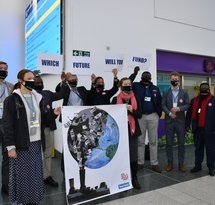
Both ENDS works with partners worldwide to amplify the voices of communities that are experiencing first-hand the devastating social and environmental impacts of unsustainable financial policies and practices – from climate change to pollution to forced displacement. For more than two decades, we have worked to draw attention to an obscure, yet hugely influential type of financial institution: export credit agencies (ECAs).
-
News / 19 May 2022
Response to government’s letter to parliament on implementation of the Glasgow Declaration
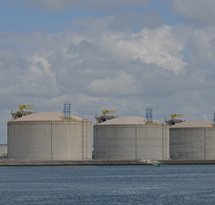
Both ENDS and 95 other organisations* today sent a letter to State Secretary for Finance Marnix van Rij and Minister for Foreign Trade and Development Cooperation Liesje Schreinemacher calling on them to implement the Glasgow Declaration in full. In this agreement, which the Netherlands and 33 other countries signed at the Glasgow climate conference, the signatory countries pledge to stop all public funding for fossil projects by the end of 2022.
-
Press release / 19 May 2022
122 CSOs warn signatory countries they have only six months left to meet COP26 commitment to end international public finance for all fossil fuels
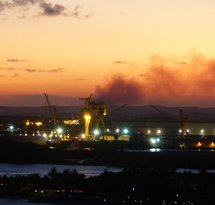
Today, 122 civil society groups are releasing letters to eleven government signatories to the Glasgow Statement on International Public Support for the Clean Energy Transition, laying out the actions they must take as soon as possible to meet their commitment. In this joint statement at COP26, 35 countries and 5 public finance institutions committed to end their international public finance for 'unabated' fossil fuels by the end of 2022, and instead prioritise their "support fully towards the clean energy transition."
-
News / 21 December 2021
Two generations fighting against climate change in Ghana: meet our partners Richard and Kenneth

In Ghana, the effects of climate change are already tangible, just like in many countries around the world. How to ensure that these different experiences are heard and known by the Ghanaian government so that it will take actions that have a positive effect on people and their environment? And how to make local communities aware that they can hold the government accountable - and even have the responsibility to do so? During COP26 in Glasgow we spoke with Kenneth Nana Amoateng (47) and Richard Matey (30). Kenneth works at the AbibiNsroma Foundation, a local NGO, and took it as his mission to advocate for a healthy environment, climate change, and to give young people opportunities. Richard is part of that younger generation and works at the Alliance for Empowering Rural Communities in Ghana.
-
Event / 4 November 2021, 16:45 - 18:00
UNFCCC COP 26 side event ‘Aligning export finance with the Paris Agreement: high time to phase out fossil fuels’
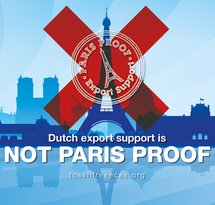
Many countries heavily support fossil fuel investments abroad through their export credit agency (ECA). This contributes to carbon lock- in, whereby companies or even countries commit themselves to a certain amount of greenhouse gas emissions for the lifetime of the infrastructure — oftentimes years or even decades. This seriously delays the transition to renewable energy sources, and is certainly not in line with Art. 2.1c of the Paris Agreement.
Highlighting the impacts caused by export finance in the global South, this side event will provide concrete recommendations to decarbonize export credit agencies.
-
News / 15 October 2021
German research confirms: Dutch Export Credit Agency is not Paris Proof
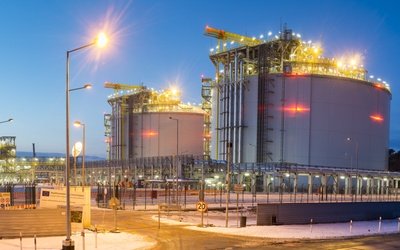
The Dutch export credit agency Atradius DSB is not aligned with the Paris Climate Agreement; on behalf of the Dutch State, it continues to strongly support investments in fossil fuels. This is the conclusion of a report by German research agency Perspectives Climate Research (PCR), in which the export credit agencies of the Netherlands and Japan are measured in terms of their climate ambitions and alignment with the Paris Agreement.
-
News / 12 July 2021
WOB applications relating to export support for gas project in Mozambique
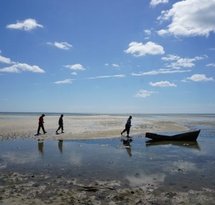
At the beginning of this year, the Dutch government provided Dutch companies with export insurance worth 903 million euros to enable them to participate in a gigantic natural gas project in the north of Mozambique. Together with partners from Mozambique and the Netherlands, Both ENDS has been conducting a dialogue with export credit agency Atradius DSB and the responsible Ministries of Finance and Foreign Affairs on the possible financial, environmental and social risks of the gas project.
-
News / 4 May 2021
Is the Netherlands’ export credit insurance support for fossil projects legal?
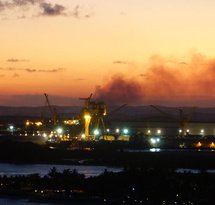
Today, two independent experts brought out a legal opinion on the obligations of countries and their export credit agencies under international law in relation to export support for fossil fuels. According to the report, emissions by fossil fuels and the related infrastructure need to be reduced urgently.
-
Press release / 11 November 2020
Export support for dirty energy in Africa
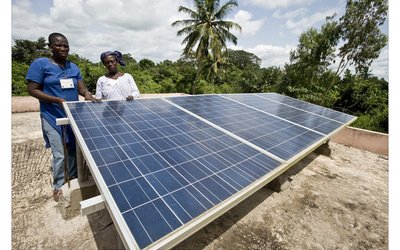
Since the signing of the Paris Climate Agreement, rich countries have provided almost 50 times as much export support for fossil fuel related projects as for clean energy projects in four African countries. This is the conclusion of a report written by five environmental organisations from Ghana, Nigeria, Togo and Uganda, in cooperation with Friends of the Earth Netherlands and Both ENDS. The rich countries insured energy projects with a total value of 11 billion US dollars through their export credit agencies (ECAs). More than half of this export support is related to fossil fuels. Only 1% went to sustainable renewable energy.
-
Publication / 11 November 2020
-
News / 30 June 2020
Extra export support from the government must stimulate green growth

Almost 40 civil society organisations and networks from around the world, including Both ENDS, today sent a letter to Dutch Minister for Foreign Trade and Development Cooperation Sigrid Kaag and State Secretary for Finance Hans Vijlbrief. They are asking the ministers to ensure that the expansion of export credit insurance as a result of the Corona crisis contributes to a green recovery.
-
Letter / 29 June 2020
Letter: Extra export support from the government must stimulate green growth
Almost 40 civil society organisations and networks from around the world, including Both ENDS, today sent a letter to Dutch Minister for Foreign Trade and Development Cooperation Sigrid Kaag and State Secretary for Finance Hans Vijlbrief. They are asking the ministers to ensure that the expansion of export credit insurance as a result of the Corona crisis contributes to a green recovery.
-
Press release / 18 November 2019
Press release: Government undermines its own climate policy with export credit insurance
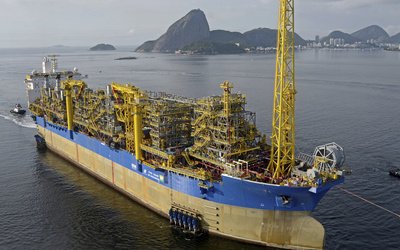
The Netherlands provides export credit insurances and guarantees worth 1.5 billion euros annually to Dutch companies active in the oil and gas sector abroad. This support amounts to one and a half times the annual amount that the Cabinet of Prime Minister Rutte mobilises for climate initiatives worldwide. The intended effects of Dutch international climate policy are more than offset by this fossil export support. That is the conclusion of a new report from Both ENDS which is published today.
-
Publication / 17 November 2019



